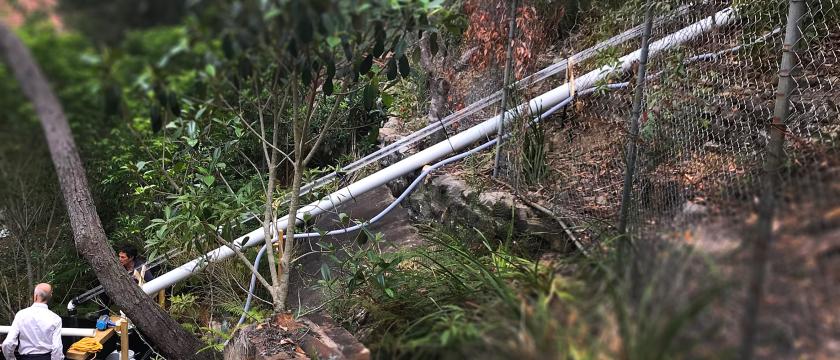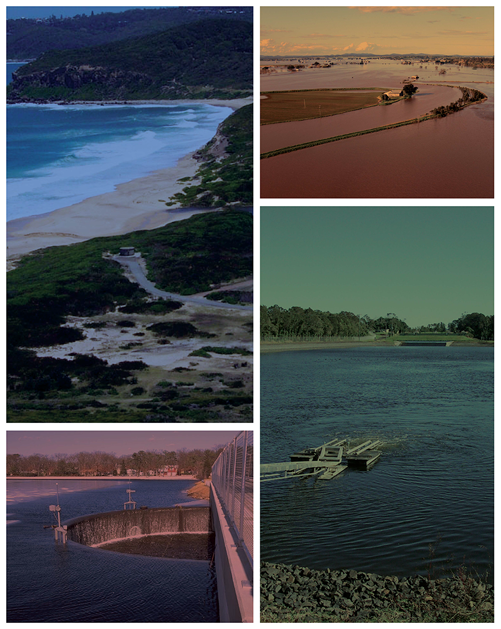A multidisciplinary research team has made important progress on the operation of a new type of fishway, the Tube Fishway, which promises to be a cost-effective alternative to existing fishways. This presentation will provide an overview of the Tube Fishway operation, including progress in attracting native Australian fish and lifting these fish across barriers of 4 and 8 m. It will further provide an outlook into upcoming field installations.
Event Date Time 17 / 05 / 2022 12:00 pm–01:00 pm
Free Registration Closes 15 / 05 / 2022 12:00 pm

Fish populations are struggling world-wide and many native Australian fish species are threatened. While many fishway types have proved to enable some fish movement across low-head barriers, these fishways are generally expensive. For large barriers, mechanical solutions such as fish lifts are often unreliable, and manual trap-and haul systems may be the only reliable option. A new fishway concept, the Tube Fishway, is a promising, cost-effective alternative to enable fish migration across barriers with heights of 1 m to above 100 m. The operation of the Tube Fishway comprises attraction of fish, lifting of fish with an unsteady surge at near-atmospheric pressure, and the automated operation of the Tube Fishway in a simple sequence of valve operations.
Research has been conducted over the past five years to prove the operation of Tube Fishways under controlled laboratory conditions, showing that fish can be lifted without injury and paving the way for field installations. John Harris will critically reflect on the state of fishways in Australia and the journey to develop the Tube Fishway. Stefan Felder will then provide an overview of the Tube Fishway research over recent years and the upcoming field activities.
Speakers
Stefan Felder
Senior Lecturer, Water Research Laboratory, UNSW Sydney
Stefan Felder is a Senior Lecturer in hydraulic engineering and applied fluid mechanics at the UNSW Water Research Laboratory. His research explores advanced experimental methods in the laboratory and at full-scale to resolve challenges in hydraulic engineering including air-water flow phenomena, and optimisation of hydraulic structures for flow conveyance, fish passage and environmental flows. He is leading the Tube Fishway research activities at the Water Research Laboratory.
John Harris
Adjunct A/Prof, Centre for Ecosystem Science, UNSW Sydney
Dr John Harris has 40+ years’ experience in river ecology and freshwater fisheries science. As Principal Research Scientist in NSW Fisheries, he led freshwater research and guided the NSW Water Reforms. He led the Fish Ecology Program in the Co-operative Research Centre for Freshwater Ecology. As the Murray-Darling Basin Commission’s Independent Scientist, he helped develop the Native Fish Strategy. Dr Harris was one of four Auditors who designed and managed the MDB’s Sustainable Rivers Audit. Current activities as Adjunct Associate Professor in UNSW’s School of Ecosystem Science focus on fish migration



Leave a Reply